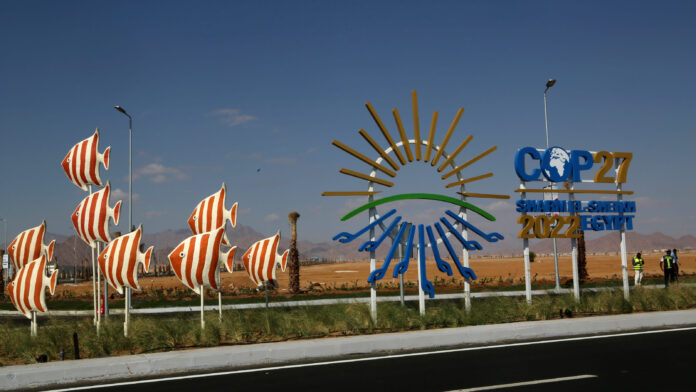Much hailed, and much highlighted, the decision at COP27 to set up a global fund for “loss and damage,” providing financial assistance to poor nations stricken by climate disaster presents a double-edged sword for Pakistan.
On the one hand, the hard fought accord is a great moral victory for the developing world. According to the Center for Global Development, developed countries are responsible for 79% of historical carbon emissions. Yet studies have shown that residents in least developed countries have 10 times more chances of being affected by these climate disasters than those in wealthy countries. Further, critical views have it that it would take over a 100 years for lower income countries to attain the resiliency of developed countries.
The data on emissions and their disproportionate effects have long been damning for the global north and has been the cause of the demand for climate reparations. On the flipside, the current deal has many holes in it that need to be addressed. The setting up of a global fund marks an important milestone, but no agreement has been reached as of yet regarding how fossil fuels will be phased out, which countries will be expected to pitch in for the global fund, and under what conditions funds will be dispersed.
Pakistan’s role at this year’s conference was front and center because of the disastrous floods that the nation faced this year which captured the attention of the global community. Minister for Climate Change, Sherry Rehman, was among the delegates that fiercely debated the setting up of the fund in Egypt — a meeting that carried on all night before a final accord was reached and announced at 7AM the next morning. The problem is, while a fund has been set up, it will be many years before money starts pouring in and getting access to that capital will be a continued challenge.
While this is a diplomatic success for Pakistan specifically and a cause for celebration all across the developing world, relying on it to fight climate change may prove to be a flawed strategy. The crisis that confronts Pakistan and other third world countries at this hour is immediate. There is a dire need to limit temperatures to 1.5C, and ensure that money is spent not just on rehabilitation of damaged property and persons but on crafting policies that combat climate change.
This will mean two things. The first will be continuing the fight for reparations. The fund is only a first step, and with Pakistan emerging as a leader on this issue this year, a sustained policy of pushing for quicker action from the global north is vital. That is where the second part comes in. Pakistan has to get its own ducks in a row by cutting down emissions and making climate friendly policies. If this is not done, the rest of the world will have enough ammo to dismiss Pakistan’s demands for financing.
The reality is that while the demand for climate reparations is legitimate, it is a demand the global north will not feel particularly pressured by. Why would they? The argument at the disposal of developing countries is entirely moral. Already, countries like the United Kingdom have said they feel no obligation to make up for the damages.
Climate change is the biggest threat to Pakistan right now. More than political instability, civil-military unrest, and recession, climate change is our most major concern. It goes to the heart of our food security and the livability of our cities. The only way to solve it is through money. To make this work, it will require unfettered determination and single-minded policy.




